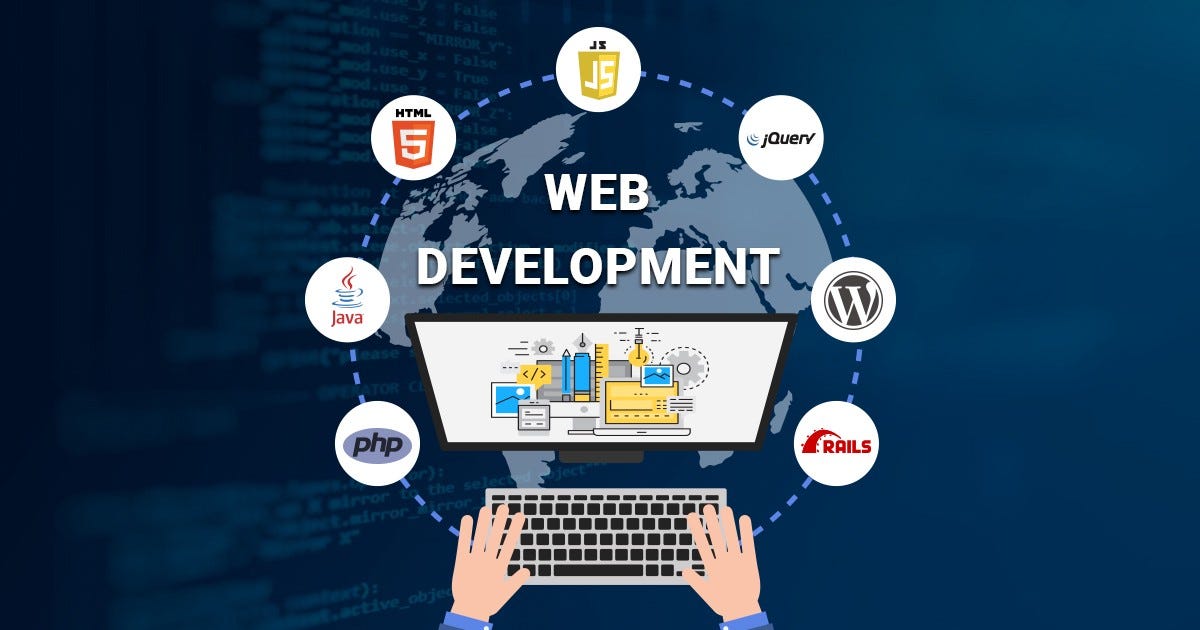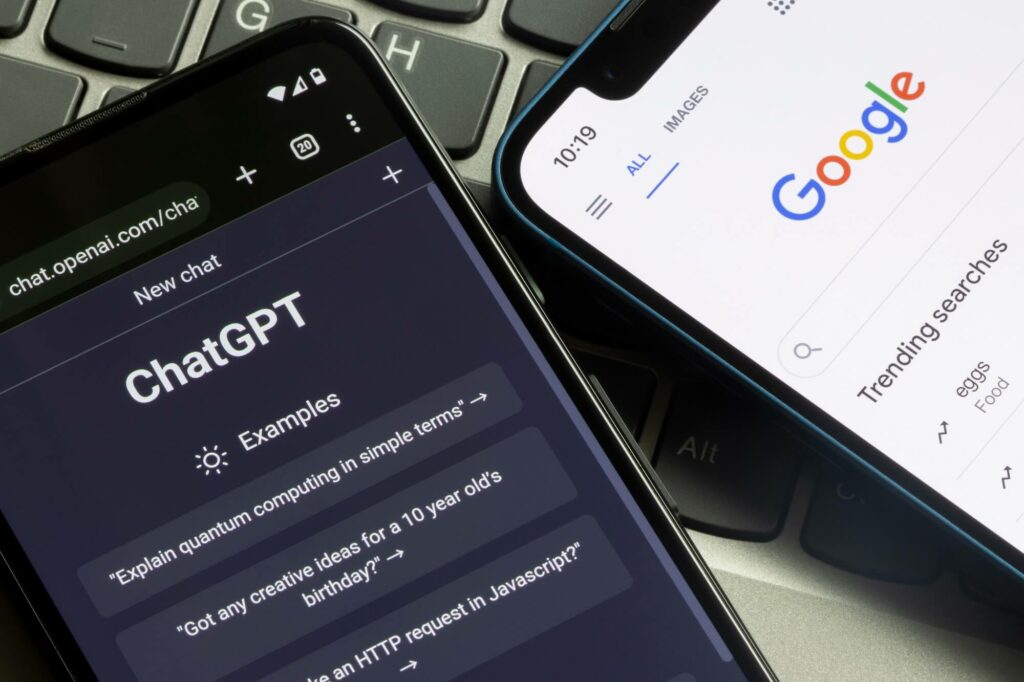
Web Design: Essential Website Development Tips for Beginners
Building a website is a crucial step for any business or personal project. Web development is complex, with the right

–The world of digital marketing is changing quickly because of artificial intelligence (AI).
–Tools like ChatGPT are changing how people find information.
–This brings both challenges and chances for brands that want to improve their online presence.
–For a long time, search engine optimization (SEO) has been key for online visibility. However, AI is changing the game.
–We must ask an important question:
–How do AI tools choose which brands to show in their results?
–What does this mean for SEO strategies?
–Getting high visibility on Google has been a key goal for marketers for many years.
–Now, with AI tools like ChatGPT becoming more popular, it is important to understand how SEO affects AI-generated answers.
–This change means marketers need to think about their rankings on search engines and how visible they are on AI-driven platforms.
–AI tools choose answers by looking at several things. These include relevance, context, and what the user wants.
–For brands to stay competitive, they need to change their plans. They have to manage both regular search engines and AI content platforms.
–LLMs (Large Language Models) is changing how people use search platforms.
–It is looking at what users really want and the situation around their questions, not just the words they type.
–Tools like Chat GPT work to understand the meaning of the questions. This helps them provide answers that fit what users are looking for.
–Because of this, brands should focus on creating content. This content should have the right keywords but also be relevant and interesting to read.
–This change calls for creating strong, user-focused content. It should provide real value and not just focus on basic optimization.
–By using AI to understand natural language, businesses can adjust their plans with changing search trends.
–This will help them stay visible in a world driven by AI.

–AI tools like ChatGPT do not get live results from Google. However, Google’s algorithm does influence how AI answers are generated.
–Google cares about relevance, domain authority, high-quality content and user engagement.
–This creates a lot of relevant content that AI systems often use to learn.
–Excelling in Google rankings does not mean you will get first place in AI responses. Other factors are important too.
–Brand reputation, media presence, and how users phrase their queries matter a lot.
–Businesses need to understand these details to improve their visibility on both traditional and AI-based platforms.
–Seer Interactive looked at how search rankings correlate to OpenAI’s ChatGPT and other AI mentions.
–Their approach included looking at a large set of data. This data had more than 300,000 keywords related to finance and SaaS.
–They checked search engine rankings, SERP features, and “People Also Ask” questions. This helped them to see how it affect ChatGPT mentions.
–A selected group of 10,000 queries was put out into OpenAI GPT4o. The ultimate focus was on industries such as finance and SaaS.
–The goal was to find patterns that connect search engine results with ChatGPT’s mention of brands.
–From this, it was found that brand mentions and studied how it connected with SEO metrics like backlinks, rankings, and content variety.
–The study revealed noteworthy trends:
–Google Rank: A close link of about 0.65 was seen between high Google rankings and those recommended by ChatGPT.
–Bing Rank shows a moderate connection of about 0.5 to 0.6. This means it has a smaller impact than Google.
–Backlinks have a small impact. This shows that AI focuses more on other signals instead of just the number of links.
–Content Variety: There is little effect, with text-based content being the main factor.
–These findings show that Google rankings have a big impact on how often AI is mentioned.
–However, in a world focused on AI, traditional SEO metrics, like backlinks, might not be as important.
–Traditional SEO focused mainly on keywords, backlinks, and technical aspects.
–On the other hand, AI-driven SEO needs a deep understanding of what users want, how they use language, and the importance of context.
–Brands now have to create detailed and reliable content that connects well with AI systems and meets what users expect.
–To optimize for AI:
–Focus on Value: Create content that fully answers user questions.
–Use Related Words: Use words that mean the same thing to help people understand the context better.
–Make It Easier to Read: Use clear headings, short paragraphs, and organized layouts.
–Use Schema Markup: This helps search engines read your content better and understand what it means.
–AI tools can be very helpful for improving content marketing. Businesses can look at the answers generated by large language models (LLM) like ChatGPT.
–This helps them spot trends and see how visible their competitors are.
–They can also adjust their content to fit what AI knows about industry-related queries.
–Write in clear, conversational language.
–Add FAQs to answer common questions well.
–Make sure the website works well on smartphones.
–Ensure it loads quickly.
–A finance company noticed more mentions of AI. This happened after they added clear and helpful FAQs to their product pages.
–As a result, their Google rankings improved. They also saw better visibility for AI.
–A startup improved its brand visibility by making detailed guides.
–These guides help users with their problems and show the company’s knowledge and relevance in the field.
–AI-powered search is changing quickly. Marketers need to keep up with algorithm updates and change their strategies when needed.
–Setting new KPIs is important. Tracking engagement metrics will help measure success in this fast-moving world.
–Using AI to improve strategies requires special skills. These include natural language processing, data analysis, and technical SEO.
–It is important to invest in training and resources. This helps to understand the challenges that come with AI-driven search.

–AI will keep changing SEO in big ways. It will focus more on personal search experiences, voice search, and better tools for creating content.
–Marketers need to mix old SEO methods with insights from AI to stay competitive.
–To stay ahead, marketers should:
–Invest in AI research and training.
–Experiment with AI-powered tools.
–Use flexible plans to meet changing user needs.
–SEO and AI are closely connected now.
–This means businesses need to change how they work to stay visible.
–By learning how AI affects search results and improving content so that AI can recognize it, brands can stay relevant.
–It is important for them to be flexible and ready to adapt to changes in this new era.

Building a website is a crucial step for any business or personal project. Web development is complex, with the right

Outsource social media management services has become a vital part of business success, with the right agency or freelancer you
Ready to elevate your business? Let’s talk about creating a website, launching campaigns, or boosting your online presence with tailored solutions.